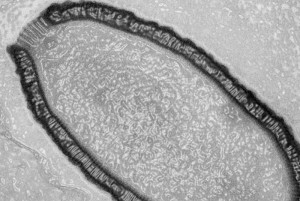
The virus was inactive for more than 30,000 years until it was revived in a laboratory in France
While more levels of rainfall caused by climate change create conditions for virus-transmitting mosquitoes, the overall warming temperatures, studies prove, may bring back viruses thought extinct or eradicated thousands of years ago. By thawing a sample of permafrost soil buried 30 meters below the surface in northeast Siberia, researchers were able to discover and revive a new type of virus. The virus, Pithovirus sibericum, after being frozen for approximately 30,000 years was able, “To infect a throng of unsuspecting single-cell organisms.”
Siberia stretches southwards from the Arctic Ocean, to the hills of north-central Kazakhstan and to the national borders of Mongolia and China. With global temperature rise leading to rapid arctic ice melt and sea level rise, a natural thawing process will occur. Many viruses thought “eradicated” could reemerge as a result. According to Professor Jean-Michel Claverie, from the National Centre of Scientific Research (CNRS) at the University of Aix-Marseille, “We might be able to eradicate viruses from the surface of the planet, but that doesn’t mean that there isn’t a single particle of that virus still alive somewhere.”
Start – 1 – 2 – 2b – 3 – 4 – 5
Additional Reading:

